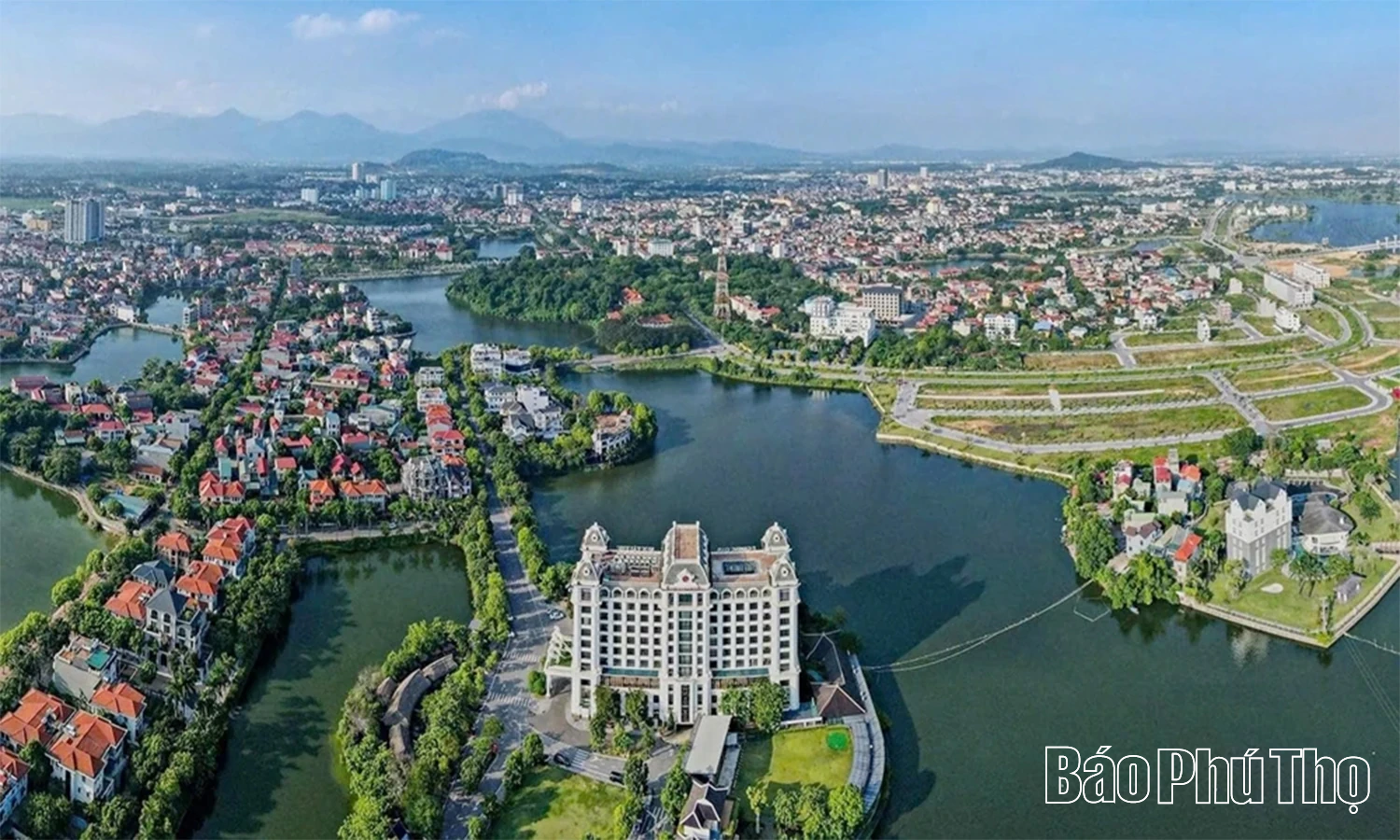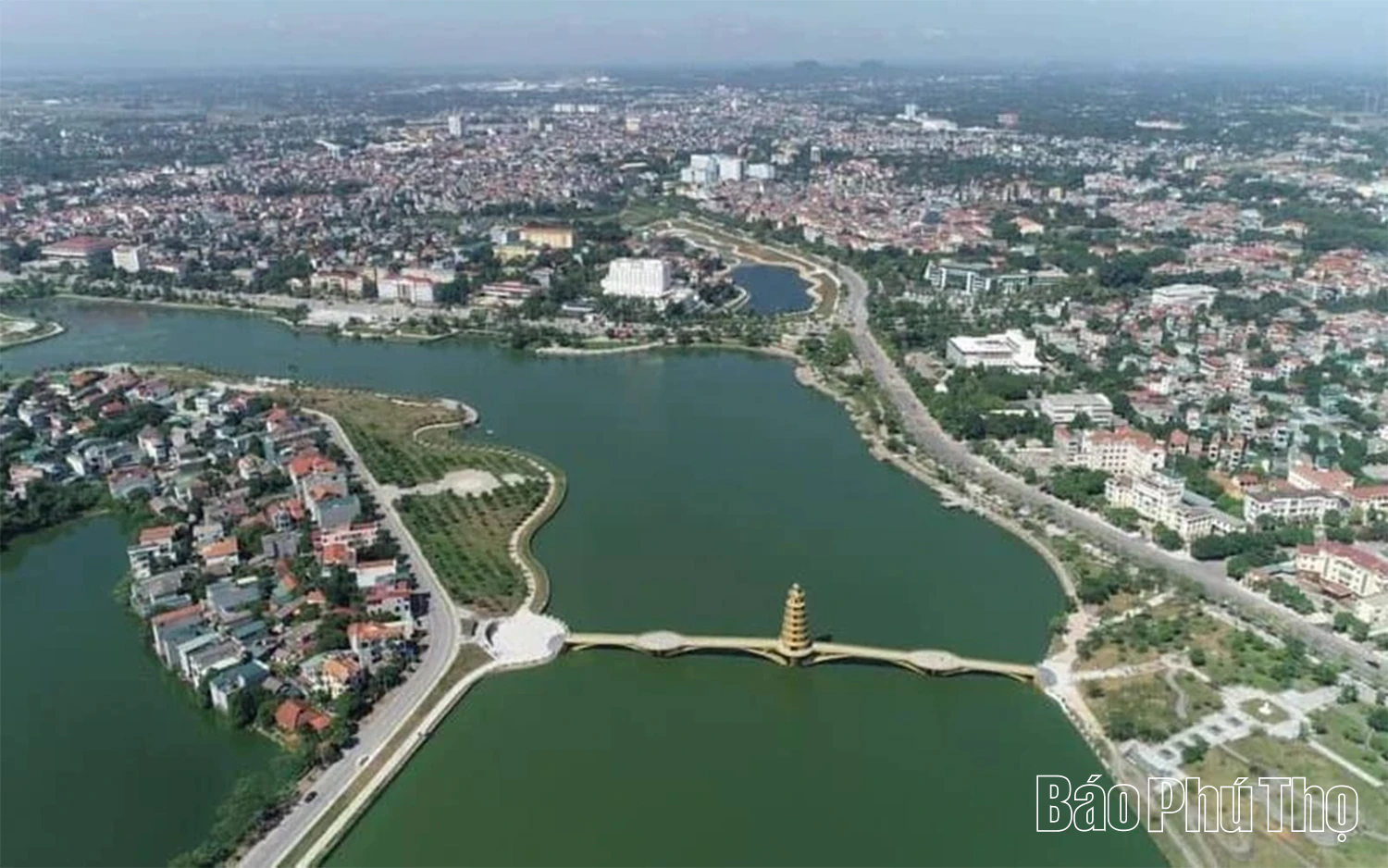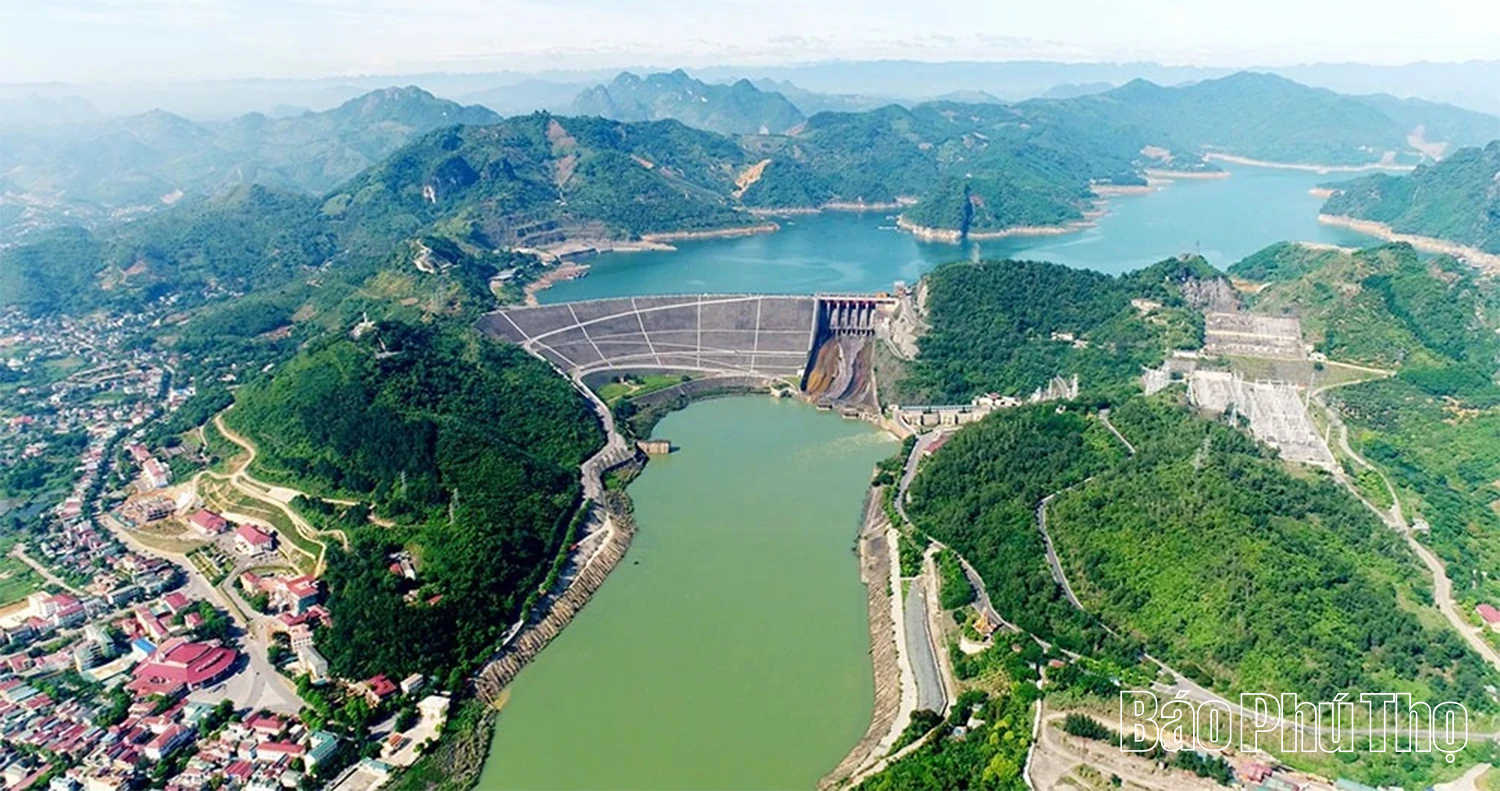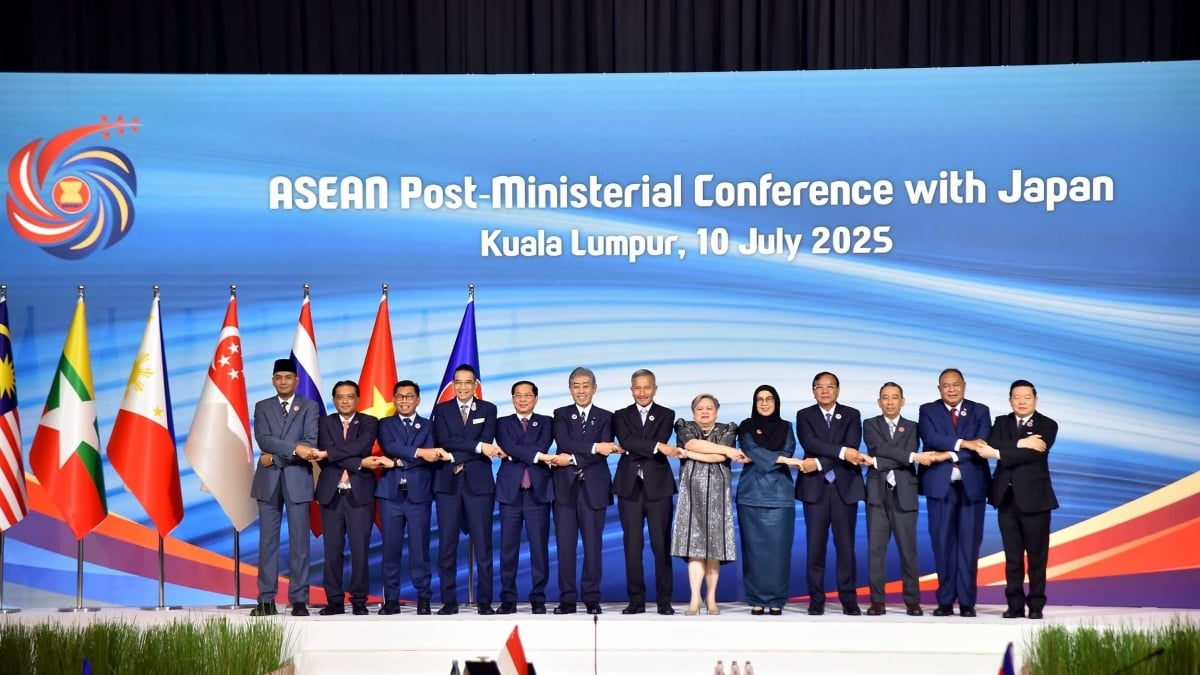The new Phu Tho province is not only a purely geographical name but also carries a strategic responsibility in the development map of the Northern midland and mountainous region. In that process, planning plays the role of a strategic compass – not only to go in the right direction but also to not miss opportunities.
The old Vinh Phuc urban infrastructure is invested and developed in a synchronous and modern direction thanks to putting planning work one step ahead.
3 pieces - 1 chance
The arrangement and streamlining of the apparatus is a strategic breakthrough policy of our Party and State in the current period. In particular, the policy of merging the three provinces of Vinh Phuc, Phu Tho, Hoa Binh into the new province of Phu Tho is considered a bold step in administrative management, economic management and development space organization. However, according to many economic experts, such boldness will only become a real turning point when the planning work is considered thoroughly, systematically, long-term and has strong innovation in thinking.
Currently, Phu Tho province is in the process of initiating the Provincial Planning for the period 2026–2035, with a vision to 2050. This is not simply a matter of adding up the three old plans, but a new planning symphony that needs to be re-composed on musical backgrounds that are very different in terms of geography, people, economy and identity values.
The three sub-regional axes that are being initially proposed are the Eastern economic dynamic axis (stretching from Vinh Yen through Viet Tri to the old Hoa Binh city); the Western ecological-cultural region and the Northern high-tech agricultural-forestry region. Each region, if it knows how to promote its advantages and connect reasonably, will no longer be a “concave” in planning like some previous areas, but will become lifebloods that nourish a healthy and sustainably developing administrative and economic body.
The old Phu Tho can be considered the “big brother” of the three provinces – in terms of cultural depth, historical sediments and planning experience. With the center being the old Viet Tri city, the province has relatively well oriented the development axis of services – industry – tourism. However, it is impossible not to see that there are still investment depressions, where planning has not reached, or there is no connection between urban, rural and mountainous areas.
The quality planning of central subdivisions creates a spacious and modern appearance for the urban area in the old Phu Tho province.
The old Vinh Phuc was widely agreed to be a typical example of successful industrialization planning. Industrial zones such as Khai Quang, Ba Thien, Thang Long Vinh Phuc... not only brought high GDP but also shaped the province's role on the map of supporting industries in the Northern region. However, the rapid urban development also left many consequences such as the emergence of some spontaneous urban areas, infrastructure overload, increasing environmental challenges...
The old Hoa Binh province, with its natural landscape and hydropower resources, once faced a difficult problem in planning implementation. Not because of a lack of ideas, but because of a lack of resources and some other objective reasons. If the remote areas of Hoa Binh did not have flexible and encouraging planning, they could easily be left behind in the increasingly rapid development cycle.
The right direction
The key to making the three pieces work smoothly is an integrated, creative and long-term visionary plan. The new plan cannot follow the old path of fragmented thinking, but must integrate both horizontally (between sectors and fields) and vertically (between levels and periods).
The Eastern development axis - where industry, services, innovation, and logistics converge - must be considered the locomotive, both to create momentum for growth and to spread development. Satellite urban centers need to be carefully calculated to reduce pressure on the center, while distributing population and infrastructure more reasonably.
The West and North, with their vast forests, mountains, lakes, streams and indigenous cultural ecosystems, can become a space for sustainable development: eco-tourism, organic agriculture, medicinal herbs, digital agriculture, but must be planned properly to avoid destroying the landscape as some tourism projects have done in other localities.
In particular, it is impossible not to emphasize the role of connecting traffic: highways, belt roads, inter-regional railways, ICD dry ports... if planned with the "development backbone" mindset, will help the new Phu Tho not only develop internally but also connect intelligently with the capital region, the Northwest and even the coastal region.
The general goal of the Plan by 2030 is that the old Hoa Binh province will achieve a fairly good level of development, with an average income among the leading groups in the Northern midland and mountainous region.
Reality has proven that planning cannot be successful if it is discussed only in a private meeting room. It needs the voice of businesses, the input of the people, the perspective of experts, and the calculation of investors. Each development area must be placed in a real context: land, people, habits, history and exploitation potential.
Planning cannot “concrete thinking” – meaning that it should not only focus on construction, but also put people at the center, thereby planning living space, culture, work, and social security in a harmonious and flexible way.
And above all, planning must be digitalized, transparent and continuously updated – so as not to fall behind the flow of technology and global economic and social fluctuations.
New thinking - new motivation
The new Phu Tho cannot develop with the old mindset of the three old provinces. If planning continues to be considered a purely administrative task, it will be difficult to make a breakthrough. Only by considering planning as “reorganizing living space and development with strategic thinking and regional linkages” can Phu Tho fully rise to become a truly dynamic region.
Not everything that is large is strong, not everything that has a long tradition can be developed freely, not everything that has good wishes and ideas will become reality. We can only become rich and develop sustainably if we know how to take advantage of the advantages of each region, harmoniously connecting each factor such as space, culture, and people to maximize the potential and advantages available.
With a standard planning guide, Phu Tho will not only be a new province in terms of boundaries, but will also be a new symbol of modern regional planning - where long-term thinking, effective implementation and social consensus meet on the journey of sustainable development.
Quang Nam
Source: https://baophutho.vn/de-phu-tho-phat-trien-ben-vung-quy-hoach-phai-linh-an-tien-phong-236485.htm





























![[Photo] National Assembly Chairman attends the seminar "Building and operating an international financial center and recommendations for Vietnam"](https://vphoto.vietnam.vn/thumb/1200x675/vietnam/resource/IMAGE/2025/7/28/76393436936e457db31ec84433289f72)











































































Comment (0)